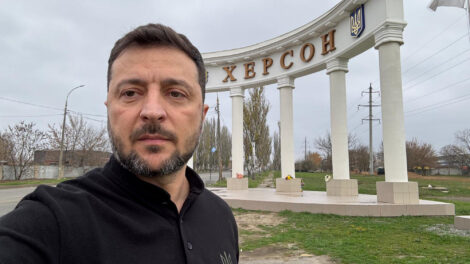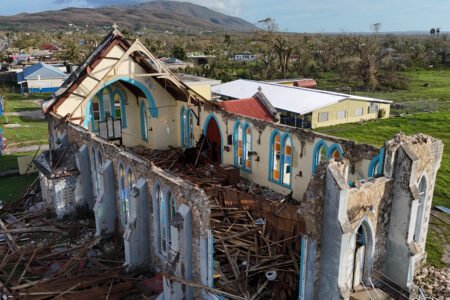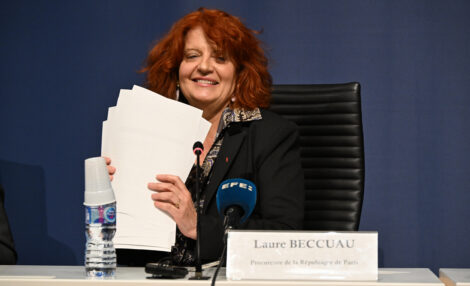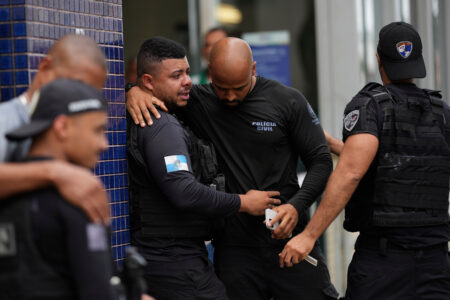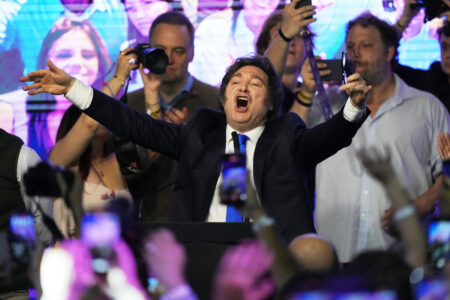Top Ukrainian ministers resign amid energy corruption scandal
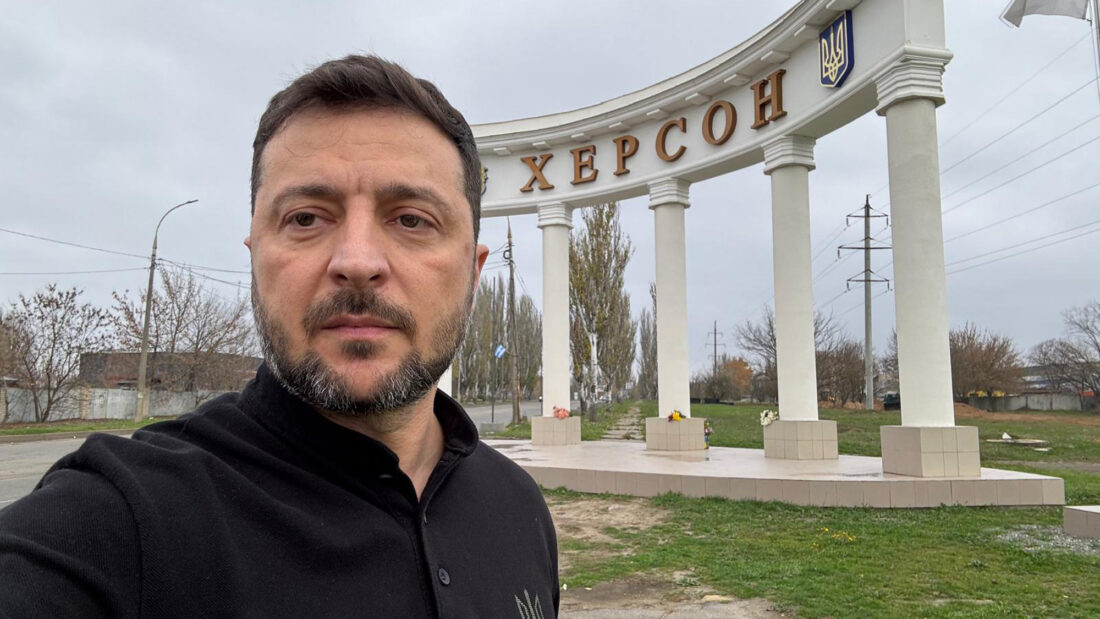
In this photo provided by the Ukrainian Presidential Press Office, Ukrainian President Volodymyr Zelenskyy stands at the sign reading "Kherson" at the approaches to the front line city of Kherson, Southern Ukraine, Tuesday.(Ukrainian Presidential Press Office via AP)
KYIV, Ukraine (AP) — As Russia’s renewed attacks on Ukraine’s energy infrastructure cause rolling blackouts ahead of winter, a major embezzlement and kickbacks scandal involving the state-owned nuclear power company has put top officials under scrutiny.
It’s fast becoming one of the most significant government crises since Moscow’s full-scale invasion, with media reports implicating a close associate of President Volodymyr Zelenskyy.
Responding to a public backlash, Zelenskyy called for the dismissal of his justice and energy ministers amid the investigation. They later submitted their resignations, the prime minister said.
Anti-corruption watchdogs — the same agencies Zelenskyy sought to weaken earlier this year– revealed the findings of a 15-month investigation, including 1,000 hours of wiretaps, resulting in the detention of five people, and another seven linked to about $100 million in kickbacks in the energy sector.
Ukrainian officials are scrambling for European funds to manage mounting energy shortages as Moscow targets critical infrastructure and natural gas production to try to sink public morale. Meanwhile, Ukraine’s outnumbered forces are retreating under relentless assaults in the nearly 4-year-old war.
The country has been plagued by corruption since gaining independence, and Zelenskyy was elected on a mandate to eliminate graft. Military procurement scandals led to the ouster of Defense Minister Oleksii Reznikov in 2023.
But the timing of this one couldn’t be much worse.
“Internally this scandal will be used to undermine unity and stability within the country. Externally, our enemies will use it as an argument to stop aid to Ukraine,” said Oleksandr Merezhko, a lawmaker with Zelenskyy’s party. “It looks really bad in the eyes of our European and American partners. While Russians destroy our power grid and people have to endure blackouts, someone at the top was stealing money during the war.”
One lingering question is how high the corruption goes.
The National Anti-Corruption Bureau, known as NABU, refrained from identifying the suspects but said they included a businessman, a former adviser to the energy minister, an executive who oversaw physical protection at state energy company Energoatem, and others responsible for money laundering. It dubbed the scheme “Midas.”
The agency also accused eight people of bribery, abuse of office and possession of disproportionate assets.
The investigation, which NABU said conducted over 70 raids, was welcomed by Zelenskyy, who urged officials to cooperate with it. Energoatom says the inquiry didn’t disrupt its operations.
NABU released excerpts of tapes in which the network, using code names and secretive language, discussed blackmail and pressuring Energoatom contractors to extract 10%-15% in kickbacks and bribes in exchange for them to do business without facing internal blocks.
The network took advantage of a regulation enforced during martial law prohibiting contractors from claiming debts in court from companies providing essential services, such as Energoatom, which has annual revenues of about $4,7 billion. Four others worked to launder the money at a Kyiv office.
The tapes, which have not been independently verified by The Associated Press, say about $1.2 million was given to a former deputy prime minister, whom the plotters called “Che Guevara,” after the revolutionary leader.
Ministers resign
Amid the scandal, Zelenskyy called for the ouster of Justice Minister Herman Halushchenko, who also was a former energy minister, and current Energy Minister Svitlana Grynchuk.
Prime Minister Yuliia Svyrydenko said they submitted their resignations. She also said the cabinet submitted proposals to apply sanctions against Timur Mindich, a close Zelenskyy associate, and businessman Alexander Tsukerman.
“Among other things, this is a matter of trust,” Zelenskyy said in a video on his Telegram channel.
That has raised questions about what the country’s highest officials knew of the scheme, especially with war powers concentrated in the president’s office. Zelenskyy tried to curtail Ukraine’s anti-corruption watchdogs last summer but reversed course after widespread protests.
Months later, the watchdogs released their findings.

